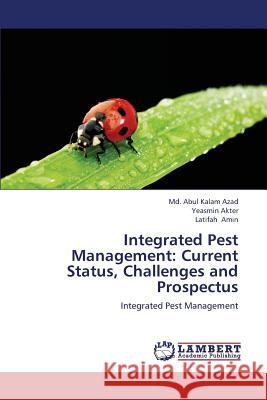Integrated Pest Management: Current Status, Challenges and Prospectus » książka
Integrated Pest Management: Current Status, Challenges and Prospectus
ISBN-13: 9783659420368 / Angielski / Miękka / 2013 / 60 str.
The use of pesticides for pest management in agriculture is great concern due to negative impact on human health, wildlife and environment. Farmers are dependent on synthetic pesticides for controlling the pest in agriculture. IPM plays an important role for effective pest management that are safe for human health and environmentally viable. The different stakeholders' showed positive attitudes towards IPM technology in agriculture. IPM technologies such as sex pheromone trap, bio-control agent and botanical pesticides are socially acceptable and environmental friendly. Lack of farmers knowledge and awareness of consumers are main barrier for dissemination IPM technology. However, raw materials of botanical pesticides are available that can motivate the farmers for adoption of IPM technology. Community based IPM approach is more sustainable and effective for pest management in agriculture.
The use of pesticides for pest management in agriculture is great concern due to negative impact on human health, wildlife and environment. Farmers are dependent on synthetic pesticides for controlling the pest in agriculture. IPM plays an important role for effective pest management that are safe for human health and environmentally viable. The different stakeholders showed positive attitudes towards IPM technology in agriculture. IPM technologies such as sex pheromone trap, bio-control agent and botanical pesticides are socially acceptable and environmental friendly. Lack of farmers knowledge and awareness of consumers are main barrier for dissemination IPM technology. However, raw materials of botanical pesticides are available that can motivate the farmers for adoption of IPM technology. Community based IPM approach is more sustainable and effective for pest management in agriculture.











